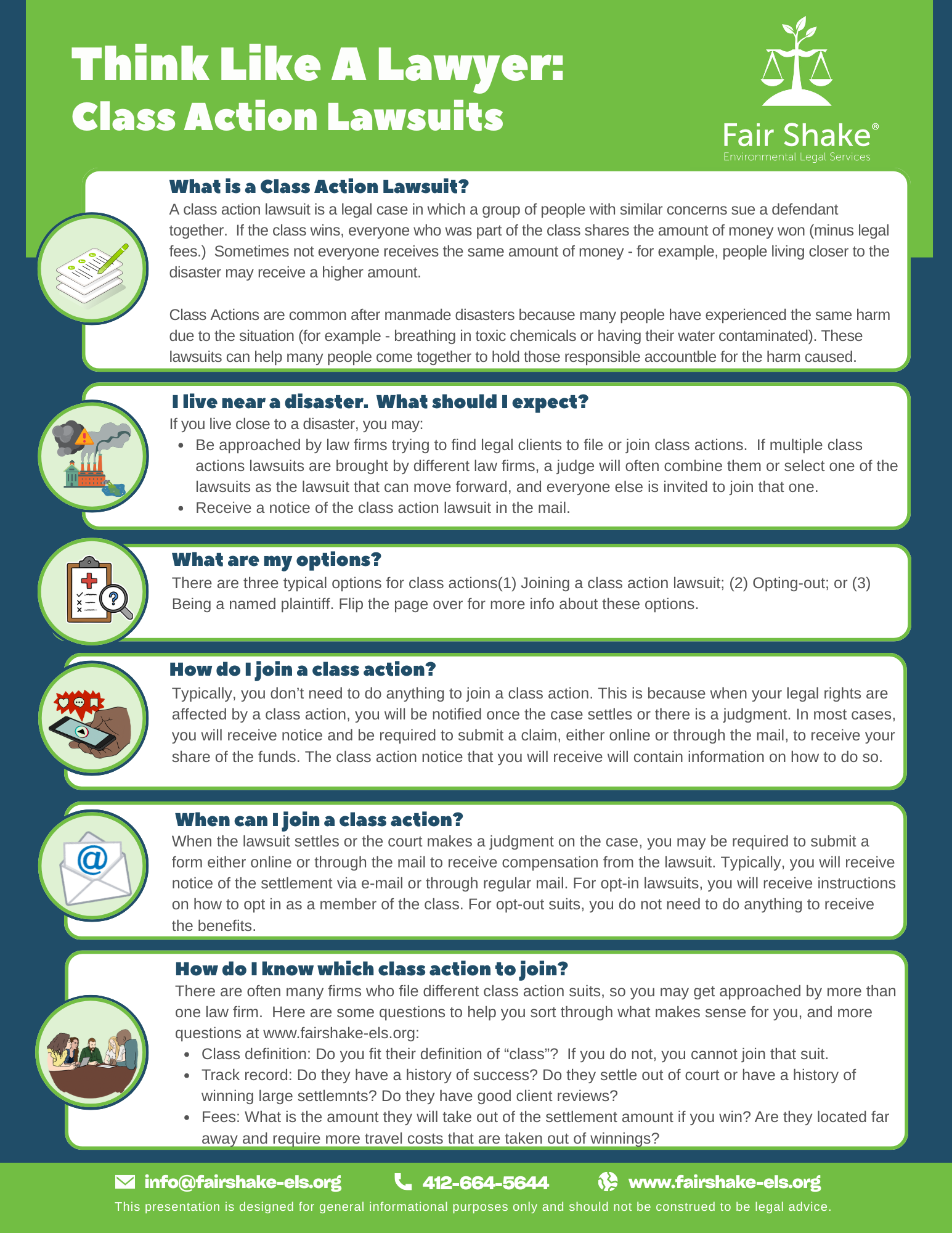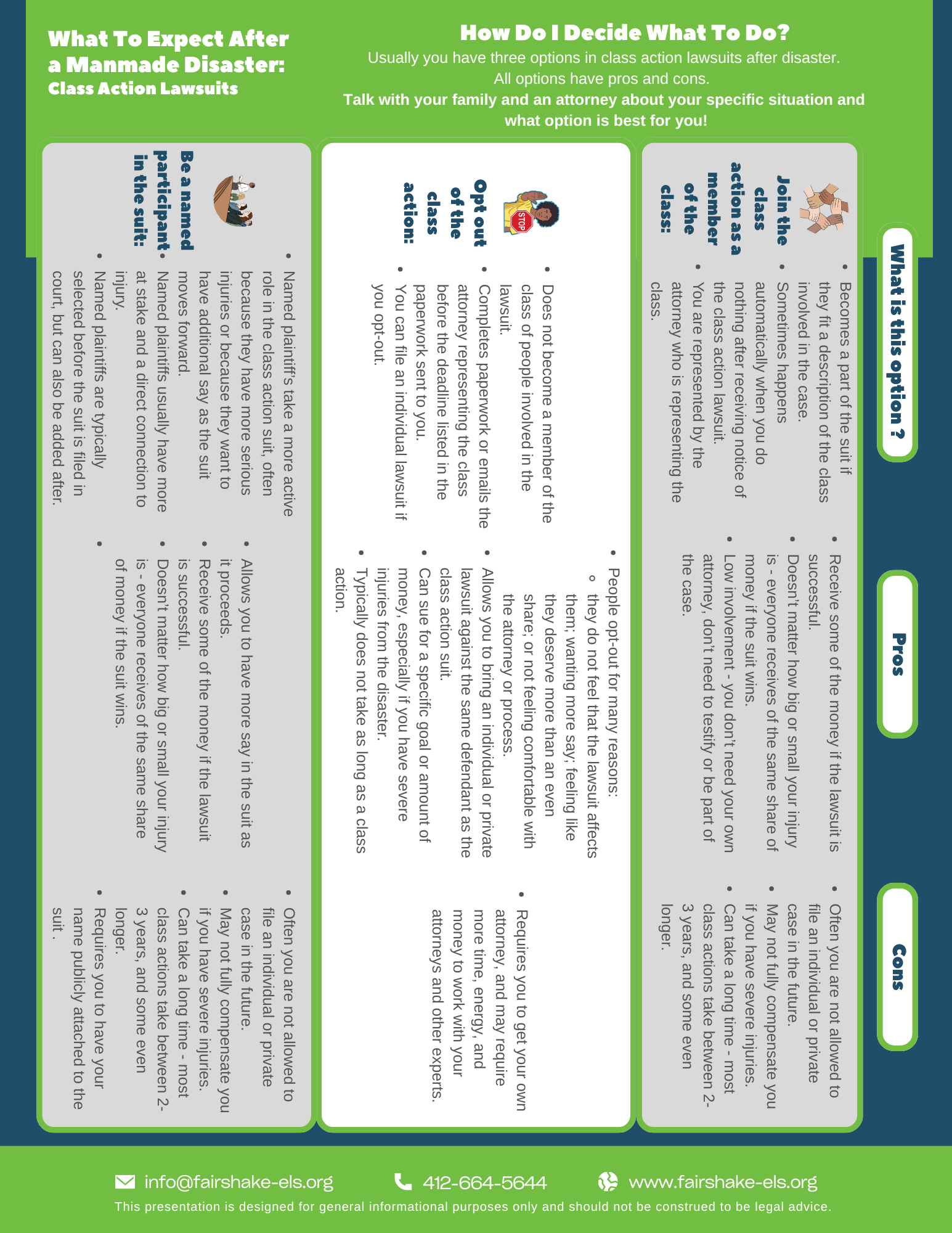Working with attorneys
how to find an attorney
If a decision has already been made and you or your community is being harmed, hurt, or injured, it may be time to talk to an attorney. An attorney can help when:
The fight reaches its culminating point.
Clear violation of fundamental rights.
Community has exhausted efforts through the democratic or regulatory process.
Administrative challenge or appeal.
-
Case Costs and Fees
What is your fee structure? Do you work on a contingency fee basis (i.e., you only get paid if I win)?
What percentage of the recovery do you typically charge for personal injury cases?
Are there any additional costs or expenses that I should expect (e.g., expert witness fees, court costs)?
Communication and Accessibility
How will you keep me updated on the progress of my case?
What is your typical response time when I have questions or need updates?
Will you be the one personally handling the case, or will other attorneys or paralegals be involved?
Strategy and Success
How will you investigate the source of contamination and the extent of damage?
What kind of timeline do you anticipate for this case?
Do you foresee any challenges or potential obstacles in this case?
Have you handled cases involving environmental contaminants before?
Can you provide examples of similar cases you've successfully represented?
-
Community:
Experts on history and culture of community
Supports those most impacted in the community
Identifies grievances
Develops demands
Develops strategy to achieve demands
Layers:
Expert on the law and procedure
Supports grassroots organizing
Provides community education
Organizational development
Leadership development










